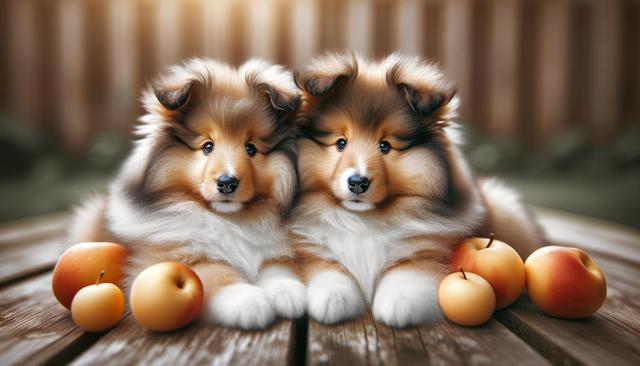Understanding the Shetland Sheepdog Breed
Often affectionately called “Shelties,” Shetland Sheepdogs are a small herding breed known for their agility, obedience, and affectionate nature. Originally developed in the Shetland Islands of Scotland, these dogs were bred to herd sheep and protect farmland. Despite their modest size, they possess the alertness and energy of larger herding breeds. Shelties bear a striking resemblance to the Rough Collie but are smaller in stature, which makes them more manageable for families in various living environments.
What makes Shetland Sheepdog puppies particularly appealing is their gentle temperament paired with keen intelligence. These qualities make them highly trainable and suitable for first-time dog owners willing to invest in consistent and positive training methods. However, their intelligence also means they require regular mental stimulation to stay happy and well-behaved.
Personality Traits and Behavior
Shetland Sheepdog puppies are known for their sweet disposition and loyal behavior. They often form strong bonds with their family members and tend to be particularly attached to one person. These dogs are also noted for being excellent with children and other pets when socialized early. While affectionate, they can be reserved around strangers, which makes early socialization a key part of their development.
Common personality traits of Sheltie puppies include:
- Alertness and attentiveness
- A tendency to bark, especially when excited or when someone approaches the home
- High sensitivity to their owner’s tone of voice and emotions
- Strong desire to please, which aids in training
It’s important to note that Shelties can be shy or anxious if not exposed to a variety of people and environments during their early months. Puppy socialization classes and regular outings can help build their confidence and reduce fearful behavior later in life.
Training and Mental Stimulation
Given their high intelligence, Shetland Sheepdog puppies respond exceptionally well to structured training. Positive reinforcement techniques such as treats, praise, and play help maintain their interest. These dogs thrive in environments where they are mentally and physically engaged, and they excel in dog sports like agility, obedience, and herding trials.
To keep a Sheltie puppy mentally stimulated, consider the following activities:
- Interactive puzzle toys
- Basic and advanced obedience training
- Short, varied training sessions to prevent boredom
- Learning new tricks or commands regularly
Training should begin as early as eight weeks of age and include basic commands such as sit, stay, and recall. Consistency is key, as Shelties are known to pick up habits—both good and bad—very quickly. Socialization should also be incorporated into training routines, including exposure to different people, pets, and environments.
Grooming and General Care
Shetland Sheepdogs have a double coat that requires consistent grooming to prevent matting and maintain a healthy shine. Their outer coat is long and straight, while the undercoat is dense and soft. Regular brushing, at least three times a week, is recommended to keep shedding under control and avoid tangles.
In addition to coat care, Sheltie puppies benefit from routine attention to overall hygiene:
- Regular nail trimming, typically every 3 to 4 weeks
- Ear cleaning to prevent wax buildup and infections
- Dental care, including brushing and dental chews
Feeding a high-quality diet appropriate for their age and activity level is essential. Puppies should be fed multiple times a day with food specially formulated for growth. As they grow, the feeding schedule can be adjusted based on their nutritional needs and veterinarian recommendations.
Is a Shetland Sheepdog Puppy Right for You?
Before bringing home a Shetland Sheepdog puppy, it’s important to assess whether your lifestyle aligns with their needs. These dogs do well in homes where they receive daily mental and physical stimulation. They are most content when they are included in family activities and not left alone for extended periods.
Consider the following when deciding if a Sheltie is a good match:
- You have time for daily walks and playtime
- You’re interested in training and engaging your dog mentally
- You can commit to regular grooming
- You live in a home where barking won’t be an issue
While they are adaptable to various living situations, including apartments, Shelties prefer environments where they have room to move and explore. A secure yard is a benefit, but not a necessity if they are walked and exercised regularly.
Conclusion: Welcoming a Sheltie into Your Life
Shetland Sheepdog puppies make loving, loyal, and trainable companions for individuals and families alike. Their intelligence, combined with their affectionate nature, ensures they fit well in homes that can meet their need for stimulation and companionship. With proper care, training, and attention, a Sheltie puppy can grow into a delightful lifelong friend.




Leave a Reply